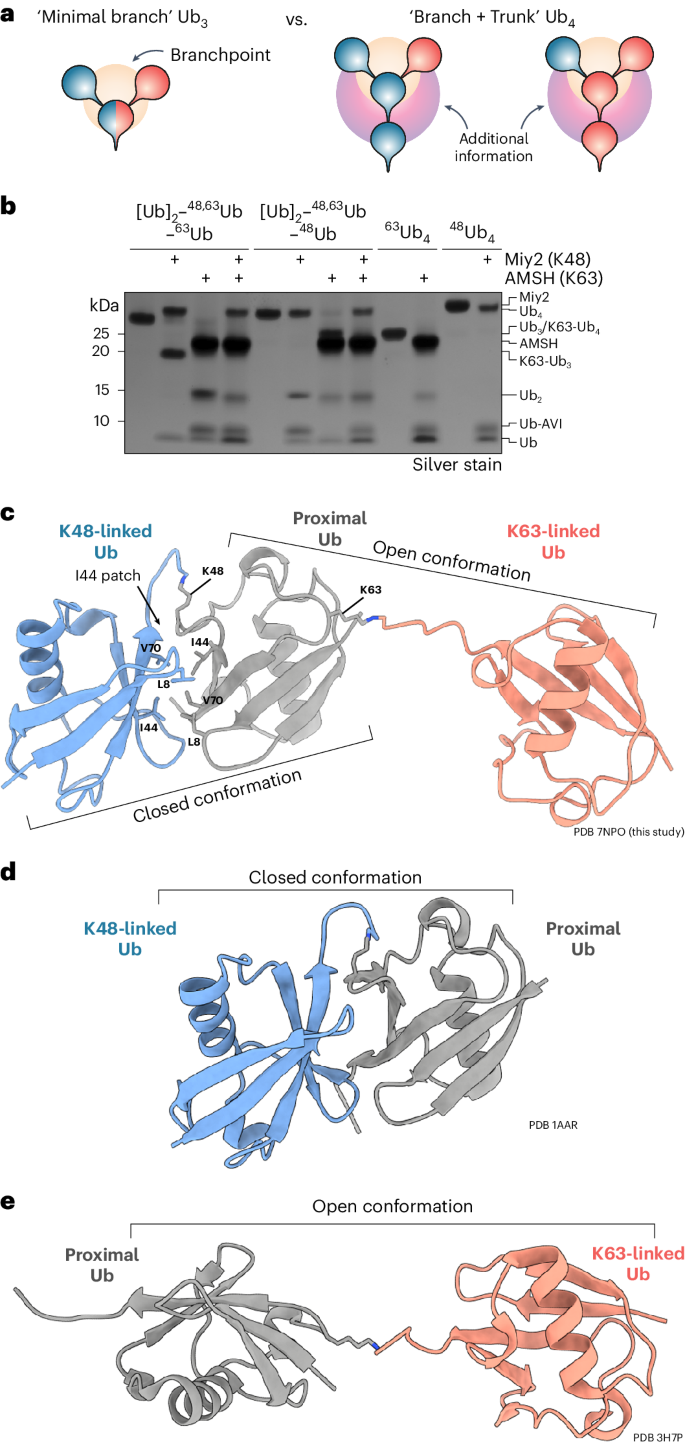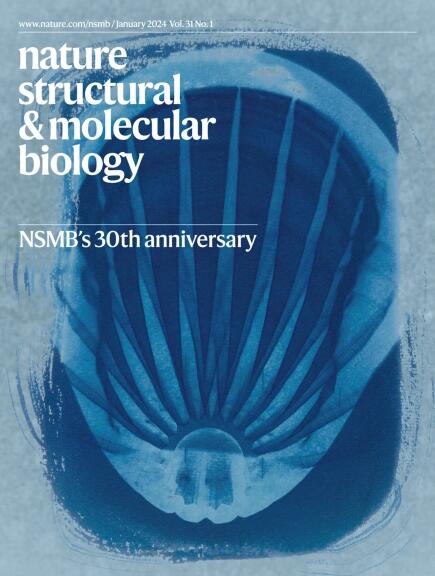VCP/p97-associated proteins are binders and debranching enzymes of K48–K63-branched ubiquitin chains
IF 12.5
1区 生物学
Q1 BIOCHEMISTRY & MOLECULAR BIOLOGY
引用次数: 0
Abstract
Branched ubiquitin (Ub) chains constitute a sizable fraction of Ub polymers in human cells. Despite their abundance, our understanding of branched Ub function in cell signaling has been stunted by the absence of accessible methods and tools. Here we identify cellular branched-chain-specific binding proteins and devise approaches to probe K48–K63-branched Ub function. We establish a method to monitor cleavage of linkages within complex Ub chains and unveil ATXN3 and MINDY as debranching enzymes. We engineer a K48–K63 branch-specific nanobody and reveal the molecular basis of its specificity in crystal structures of nanobody-branched Ub chain complexes. Using this nanobody, we detect increased K48–K63-Ub branching following valosin-containing protein (VCP)/p97 inhibition and after DNA damage. Together with our discovery that multiple VCP/p97-associated proteins bind to or debranch K48–K63-linked Ub, these results suggest a function for K48–K63-branched chains in VCP/p97-related processes. Here the authors assemble a toolkit to probe K48–K63-branched ubiquitin chain function. By identifying specific binders and deubiquitinases and engineering a specific nanobody, they reveal the importance of these chains in p97-dependent processes.


VCP/p97 相关蛋白是 K48-K63 支链泛素链的结合剂和去支链酶
支链泛素(Ub)链在人体细胞的 Ub 聚合物中占有相当大的比例。尽管支链 Ub 数量巨大,但由于缺乏可利用的方法和工具,我们对支链 Ub 在细胞信号传导中的功能的了解一直处于停滞状态。在这里,我们确定了细胞支链特异性结合蛋白,并设计了探测 K48-K63 支链 Ub 功能的方法。我们建立了一种方法来监测复杂 Ub 链中链接的裂解,并揭示了 ATXN3 和 MINDY 作为去支链酶的作用。我们设计了一种 K48-K63 分支特异性纳米抗体,并在纳米抗体分支 Ub 链复合物的晶体结构中揭示了其特异性的分子基础。利用这种纳米抗体,我们检测到含缬氨酸蛋白(VCP)/p97 抑制后和 DNA 损伤后 K48-K63-Ub 分支增加。我们发现多种 VCP/p97 相关蛋白与 K48-K63 链接的 Ub 结合或去分支,这些结果表明 K48-K63 分支链在 VCP/p97 相关过程中的功能。
本文章由计算机程序翻译,如有差异,请以英文原文为准。
求助全文
约1分钟内获得全文
求助全文
来源期刊

Nature Structural & Molecular Biology
BIOCHEMISTRY & MOLECULAR BIOLOGY-BIOPHYSICS
CiteScore
22.00
自引率
1.80%
发文量
160
审稿时长
3-8 weeks
期刊介绍:
Nature Structural & Molecular Biology is a comprehensive platform that combines structural and molecular research. Our journal focuses on exploring the functional and mechanistic aspects of biological processes, emphasizing how molecular components collaborate to achieve a particular function. While structural data can shed light on these insights, our publication does not require them as a prerequisite.
 求助内容:
求助内容: 应助结果提醒方式:
应助结果提醒方式:


